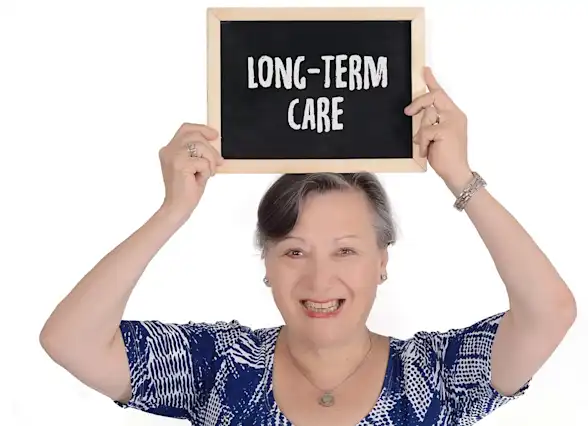Caregiving Challenges, What is Long-Term Care?
Acute care, chronic care, short-term care, long-term care... All these terms! So, what is long-term care and does my loved one need it?
Get insurance benefits, legal documents, and medical records in one place

Helpful Highlights
Long-term care simply means assistive care provided to someone over a long period of time. As a caregiver, you're already providing long-term care.
Informal long-term care is provided by unpaid (and paid) caregivers wherever a person calls home.
Formal long-term care is provided by healthcare professionals in long-term acute care (LTAC) facilities and nursing homes.
There are several factors to consider when determining if long-term care is needed.
Long-term care is...?
Long-term care is a term used simply to describe services designed to meet a person's health or personal care needs for a long period of time. These services help people live as independently and safely as possible when they can no longer perform everyday activities on their own because of a serious, ongoing health condition or disability. The need for long-term care can arise suddenly, such as after a heart attack or stroke. Most often, it develops gradually, as people get older and frailer and/or as an illness or disability gets worse.
Therefore, you're probably providing "long-term care" already and just didn't know to call it that.
Long-term care is most often provided at home (wherever that person calls home) by different caregivers, depending on a person's needs and available resources. Most long-term care is provided by unpaid family members and friends, though it is also provided by paid caregivers, hired as independent contractors or through a home care agency.
Some long-term care is provided in what are called long-term acute care facilities, or LTACs, though these are for people who require extended hospitalization and not just assistance with chronic condition management and personal care.
Home-based long-term care includes health, personal, and support services to help people stay at home and live as independently as possible. Most often, personal care and supervision are provided to make sure a person is safe. Personal care, or help with everyday health-related activities, also called activities of daily living or ADLs, is the most common element of long-term care. ADLs include showering/bathing, dressing, grooming/hygiene, toileting, eating, and transferring (i.e., moving around and from one position or surface to another). Long-term care may also include community services such as communal meals or meal delivery, adult day care, and transportation. These services may be free or provided for a fee.
Who needs long-term care?
The answer isn't so straightforward. It is difficult to predict how much or what type of long-term care a person might need, or when in their life they will need it. Several things increase the potential for needing long-term care.
Age. The potential generally increases as people get older.
Gender. Women typically need long-term care more than men, primarily because they live longer, though also because they are more prone to deteriorating conditions like osteoporosis and vascular problems (issues with arteries and veins and associated blood flow).
Marital status. Single people (including widowed) are more likely than married people to need care from a paid provider.
Lifestyle. Poor diet and exercise habits increase potential. Tobacco and alcohol use increase the potential even further.
Health and family history. Comorbidity (two conditions) or multimorbidity (three or more conditions) significantly increases the potential need for long-term care, especially as they age.
Note that the need for short-term care, such as help recovering from a surgery or significant illness (pneumonia, for example), is not necessarily a predictor of the eventual need for long-term care.
No content in this app, regardless of date, should ever be used as a substitute for direct medical advice from your doctor or other qualified clinician.
Get more support and guidance on insurance benefits, medical records and legal forms.
Helpful brings together your insurance benefits, legal documents, and medical records in one personalized place — so you always know what you have, and never have to search again.

Technology for Health Tasks. Mental Health for the Tough Stuff.
Helpful connects your medical records, insurance, and caregiving tasks automatically. And when you need more than logistics, a therapist is here to guide you.
In-Network and Covered
For Individuals, Couples and Families
HIPAA Compliant, Data Stays Private






